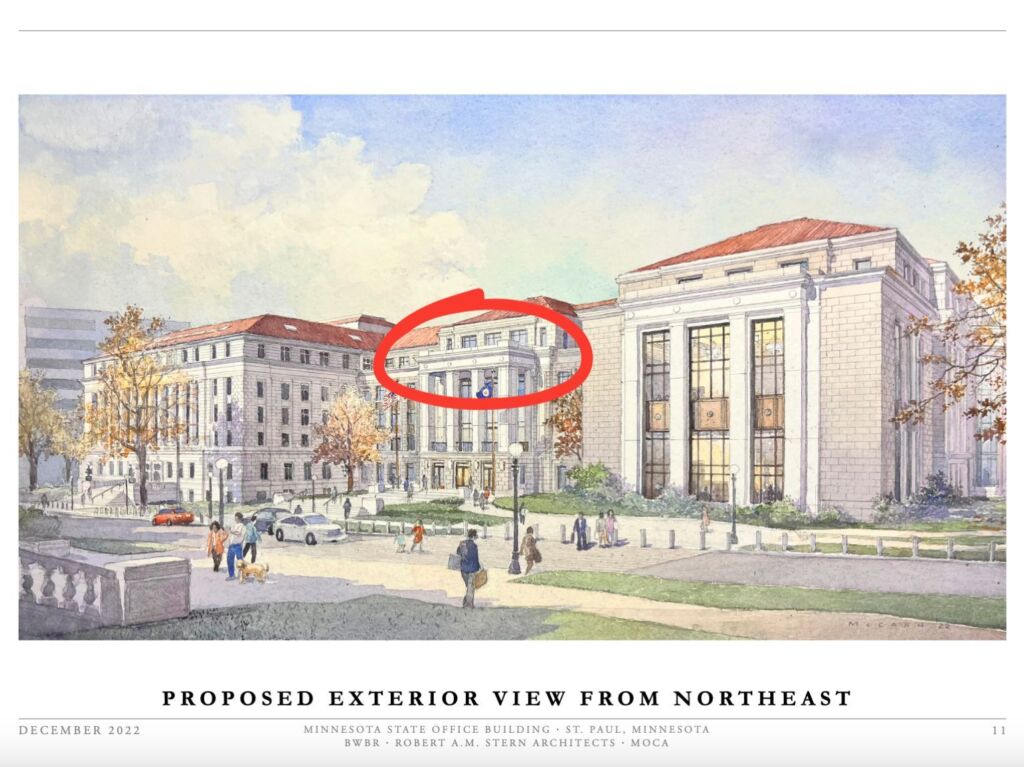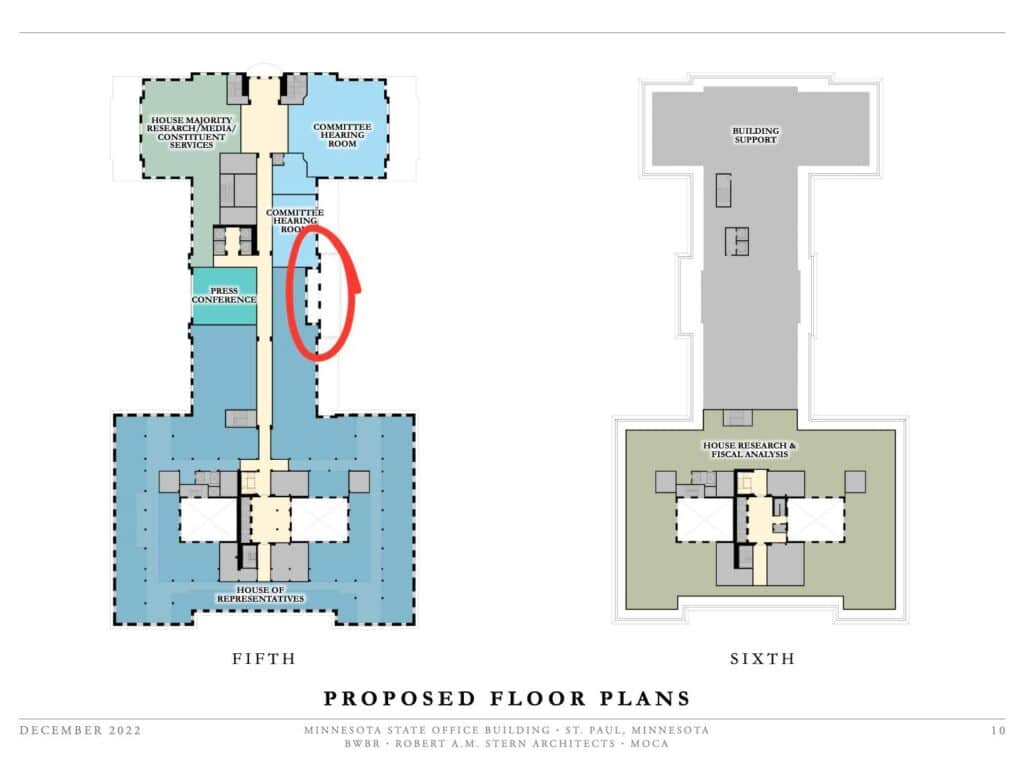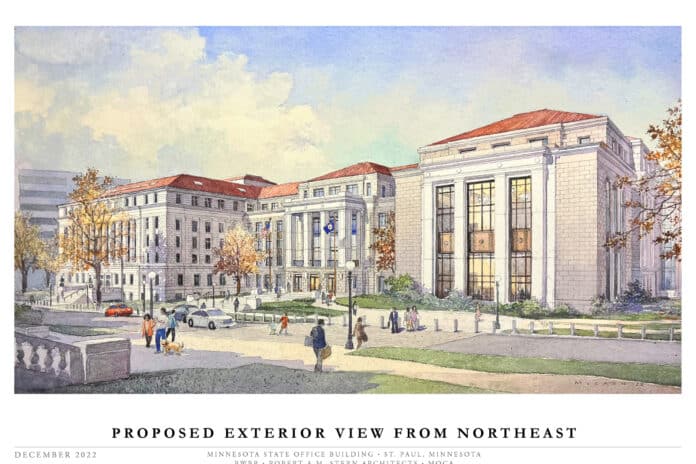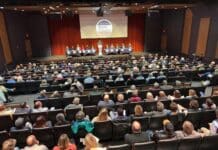(Center of the American Experiment) — Members of the House of Representatives will be able to wave to the adoring crowds from high above the state capitol grounds in St. Paul.
A project so wasteful and bloated that it’s been nominated for this year’s Golden Turkey award (vote here), the state’s lower chamber is moving ahead with a half-billion-dollar (with a “b”) project to construct a new office building for Minnesota’s 134 House members.
Here is a rendering of the new state office building complex as presented to legislators last December:

I’ve circled in red a space included in a new addition that appears to be a balcony located above the new public entrance facing the existing capitol building.
According to the floor plans for the new complex, the new balcony will not be open to the public.
To be located on the fifth floor, the new balcony space will be within the private space used by the House of Representatives. Currently, this fifth-floor space is controlled by House majority (currently Democratic) leadership.

The built-in, covered balcony/terrace space (circled in red, above) is not clearly seen on the public renderings of the project, but will be for the exclusive use of Democratic House leadership.
If you look closely at the drawings, the plans were prepared by the celebrity firm Robert A.M. Stern Architects, with their main offices on Park Avenue in Manhattan.
You may recall that Stern’s outfit was behind the prestigious Eleven condo project in downtown Minneapolis. We wrote about the 41-story Eleven project last year. Stern also designed the George W. Bush Presidential Library in Dallas, Texas.
Adding injury to insult, the entire project is terrifyingly expensive. In a letter to the current House Republican leader (Lisa Demuth, R-Cold Spring), the Minnesota Management and Budget Office (MMB) outlines the cost of the project, which may cost taxpayers up to $275 million in interest alone.
The project’s total financing cost (principal plus interest) works out to $730 million total, or more than $5.4 million per House member.
The legislature took an unconventional financing path to avoid having a recorded vote for the project. Rather than issue state-backed bonds, to the general bond-buying public, the government is borrowing the half-billion from a private investment bank.
The low-bidder investment bank is another Manhattan-based (Madison Avenue) entity, Jeffries LLC.
A little over year ago, Jeffries was fined $50 million by the U.S. Securities and Exchange Commission (SEC) for various record-keeping violations. In a related move, the U.S. Commodities Futures Trading Commission (CFTC) fined the firm an additional $30 million for violations under their purview.
Construction of the new complex is expected to be complete in late 2026.











